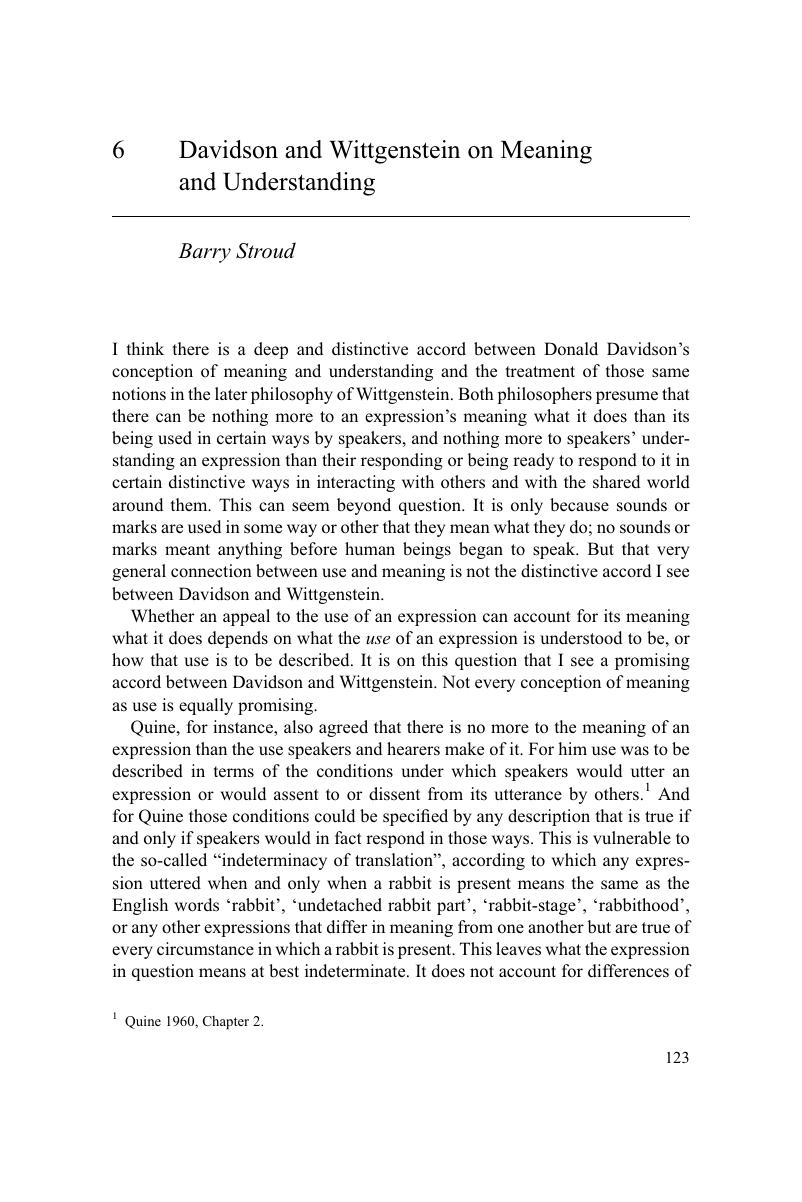Book contents
- Wittgenstein and Davidson on Language, Thought, and Action
- Wittgenstein and Davidson on Language, Thought, and Action
- Copyright page
- Dedication
- Contents
- Contributors
- Acknowledgements
- Introduction
- 1 Holism in Action
- 2 Davidson’s Wittgensteinian View of Meaning
- 3 Davidson and Wittgenstein
- 4 Rule-Following and Charity
- 5 Davidson’s Treatment of Wittgenstein’s Rule-Following Paradox
- 6 Davidson and Wittgenstein on Meaning and Understanding
- 7 The Search for “The Essence of Human Language” in Wittgenstein and Davidson
- 8 Wittgenstein and Davidson on Animal Minds
- 9 Wittgenstein and Davidson on First-Person Authority and the Univocality of Mental Terms
- 10 The Harmony of Thought and Reality
- 11 Davidson, Russell, and Wittgenstein on the Problem of Predication
- Index
- References
6 - Davidson and Wittgenstein on Meaning and Understanding
Published online by Cambridge University Press: 05 October 2017
- Wittgenstein and Davidson on Language, Thought, and Action
- Wittgenstein and Davidson on Language, Thought, and Action
- Copyright page
- Dedication
- Contents
- Contributors
- Acknowledgements
- Introduction
- 1 Holism in Action
- 2 Davidson’s Wittgensteinian View of Meaning
- 3 Davidson and Wittgenstein
- 4 Rule-Following and Charity
- 5 Davidson’s Treatment of Wittgenstein’s Rule-Following Paradox
- 6 Davidson and Wittgenstein on Meaning and Understanding
- 7 The Search for “The Essence of Human Language” in Wittgenstein and Davidson
- 8 Wittgenstein and Davidson on Animal Minds
- 9 Wittgenstein and Davidson on First-Person Authority and the Univocality of Mental Terms
- 10 The Harmony of Thought and Reality
- 11 Davidson, Russell, and Wittgenstein on the Problem of Predication
- Index
- References
Summary

- Type
- Chapter
- Information
- Wittgenstein and Davidson on Language, Thought, and Action , pp. 97 - 122Publisher: Cambridge University PressPrint publication year: 2017
References
- 2
- Cited by



